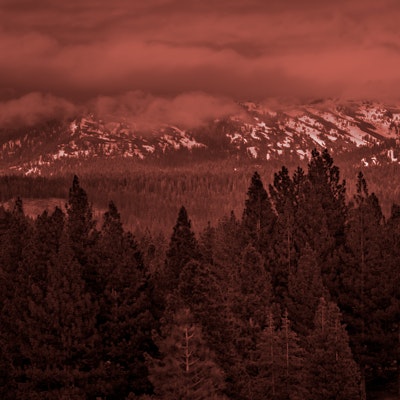Environment
Explore
Trending Now

Women are crucial to the climate movement, but their voices are often underrepresented and their work goes under-supported. Meet just a few of the women from this year’s Aspen Ideas Festival and Aspen Ideas: Health whose big ideas and bold leadership are paving the way to a better future for people and planet.

Heat is now the top weather-related cause of death in the U.S., killing more people than hurricanes, floods and tornadoes combined. An environmental journalist and two city chief heat officers discuss solutions to make searing summers more survivable.

Every transition comes with tradeoffs, and even clean energy carries negative consequences. As they mine for critical minerals or build solar arrays on sensitive land, clean energy developers must build consensus with tribal leaders, environmental activists, and politicians.

It sounds like sci-fi: Scientists are beaming solar energy from space, subbing seaweed for plastic and brightening clouds to reflect sunlight to lower temperatures in a warming world. In this series of short talks, innovators working at the cutting edge of climate tech share recent breakthroughs in the field.

Even as the clean energy transition is underway, AI and global development are demanding more energy than ever. What’s the best plan to bring massive amounts of zero- and low-carbon solutions online — and is it possible to electrify and decarbonize at the same time?

Amid the stark realities of our planet's degradation, there are bright glimmers of hope in conservation efforts around the world. Paul Nicklen and Cristina Mittermeier use masterful storytelling and breathtaking imagery to show audiences a future in which humanity works in harmony with nature to preserve our planet for coming generations.

In a recent op-ed, former U.S. climate envoy and secretary of state John Kerry declared that rich countries are failing to respond to the climate crisis. If extreme weather will cost $38 trillion dollars annually by mid-century, who will pay for the adaptation and mitigation projects needed — especially in the developing world?

As society focuses on mitigating human climate impact, economies shift away from carbon-based energy sources — which impacts individuals, businesses and governments. Beyond subsidies and regulation, we’ll need to harness the power of business, investment markets and individual self-interest to create a safer and more prosperous world.

Renewables are on the rise, but so is fossil fuel consumption as global development demands more and more. Does the oil and gas industry have a role in reaching net-zero goals? How do government policies shape the strategies of oil and gas giants as fossil fuels fade away?

Climate change is a threat multiplier with a disproportionate impact on vulnerable populations. Girls and women, who are denied equitable access to education and economic opportunity in many parts of the world, are most likely to experience the far-reaching effects of a warming planet. Advocates are trying to level the playing field with projects designed to empower the fe...

Climate change, with its global threats to health, could destroy low-lying nations and push as many as 135 million people into poverty by 2030, according to the World Bank. But these catastrophic consequences are not inevitable. Acknowledging that the burdens of climate change have been distributed inequitably, and targeting aggressive action specifically to vulnerable pop...

Nature does not limit its influence only to rural populations. In cities around the world, dense living conditions, lack of green spaces, substandard housing, and poor sanitation allow rats and insects to proliferate and pollution to degrade health. But if certain urban characteristics help spread disease, others can curb it, including strategically placed trees, adaptable...

Despite great differences in demographics, available resources, disease threats, and the structure of their health systems, all countries need responsive, equitable, and innovative policies to meet population needs. Leaders of national health agencies across the globe come together for a wide-ranging conversation that spotlights their unique and shared challenges and pione...

Extreme heat waves, storms, and wildfires; disease outbreaks, water shortages, and crop loss; tick-borne illnesses and asthma—these are just some visible signs of a changing climate. Few physicians have been trained to recognize the potent health consequences—allergies that are no longer just seasonal, athletes suddenly finding it hard to breathe, patients who can’t get ne...


Climate change is demanding an extraordinarily rapid transformation of human society, and we don’t have a manual. The people who have done the least to cause the problem are the people who will be feeling it most, and that pattern of inequality exists both within and between nations. Mapping a course to an adapted planet is an incredibly complex task that requires the coop...

At Aspen Ideas: Climate 2024, the world's most ambitious climate problem solvers came together in Miami Beach to address our collective future on this planet. Watch highlights from this year's event, which brought together global and local policy makers, innovators, scientists, artists, young leaders, and many others to forge solutions to climate change. These sessions wil...

Museums are typically testaments to the past, but a growing number are using exhibitions to shape our response to the future—specifically to climate change. Museum leaders will share how they see their institutions as mediums for storytelling, and how they balance truth-telling and advocacy.

Coastal cities are utilizing innovative solutions to adapt to extreme weather and rising sea levels, becoming more resilient in the face of climate change. From innovative design and community engagement to policy development and cross-sector partnerships, panelists will share what they’ve learned and highlight opportunities for collaboration across cities.

Storytelling, music, animation, and podcasts! Watch the magic of innovative content being born as creatives pitch their ideas to a panel of Planet Media judges, each hoping to launch short-form content aimed at helping kids understand climate change.

The impacts of the climate emergency are felt by populations worldwide, and they increasingly shape whether, where, and how people migrate. Mayors, city governments, non-profits, and local businesses are learning to confront the challenges at the intersection of climate change, migration, and displacement—along with the interconnected economic, social, and climatic element...




























